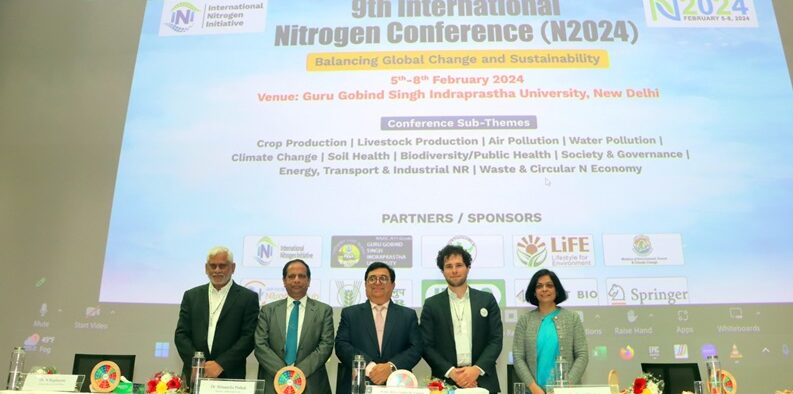IP University Hosts 9th International Nitrogen Conference
Share

Centre for Sustainable Nitrogen and Nutrient Management, School of Biotechnology, IP University with support from Sustainable India Trust, Delhi is hosting three – day 9th International Nitrogen Conference (N 2024) at Dwarka campus starting from today.
It was inaugurated by the Vice Chancellor of the University Padmashri Prof. (Dr.) Mahesh Verma. He said that nitrogen management is need of the hour to strike a global environmental balance.
The DG of ICAR Himanshu Pathak and David Kanter, Chair of International Nitrogen Initiative also graced the occasion. More than one hundred experts of domain from around 30 countries are actively participating in this conference with presenting papers.
According to Conference Chair of N 2024 Prof. Nandula Raghuram of IP University, the sole objective of organising this conference is to address various aspects of balancing global environmental change with sustainable nitrogen management. “Nitrogen is not just a new carbon but much worse, as its reactive forms go beyond climate change and impact all the sustainable development goals,” said Prof. Raghuram.
“Nitrogen pollution of our air, water and upper atmosphere limits our ability to tackle other anthropogenic threats to the sustainability of our planet. India led the first UN resolution on Sustainable Nitrogen Management and co – chaired its impletation globally in the UN environment programme. So this conference is very significant for us, he added.
“ As nitrogen’s role in geopolitical, environmental, agriculture, economics and socio – culture systems and crises become ever clear, from local to global scales, it is critical to continue pushing the boundaries of our understanding and action on the front, he further added.
This interdisciplinary conference is an attempt to address the role of reactive nitrogen in a whole range of fields including crop/live stock production, air/water pollution, climate change, public health, soil health, biodiversity, waste management and circular economy, as well as their interface with society and governance.







